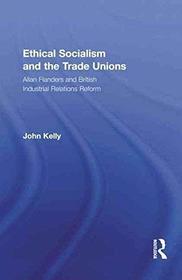Search -
Ethical Socialism and the Trade Unions: Allan Flanders and the Reform of British Industrial Relations (Routledge Research in Employment Relations)
Ethical Socialism and the Trade Unions Allan Flanders and the Reform of British Industrial Relations - Routledge Research in Employment Relations
Author:
Underlying much of the historical analysis of the field of industrial relations is an implicit assumption that the fortunes of IR as a field of study are, and have been, intimately connected to the fortunes of the trade union movement and to their economic and political influence. Union influence was most apparent in collective bargaining, the p... more »
Author:
Underlying much of the historical analysis of the field of industrial relations is an implicit assumption that the fortunes of IR as a field of study are, and have been, intimately connected to the fortunes of the trade union movement and to their economic and political influence. Union influence was most apparent in collective bargaining, the p... more »
ISBN-13: 9780415876971
ISBN-10: 0415876974
Publication Date: 2/15/2010
Pages: 176
Edition: 1
Rating: ?
ISBN-10: 0415876974
Publication Date: 2/15/2010
Pages: 176
Edition: 1
Rating: ?
0 stars, based on 0 rating
Genres:




